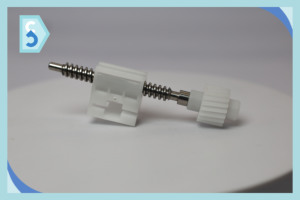Introduction to Worms Good Soil
The importance of soil health cannot be overstated, especially in agriculture and gardening. One of the most effective ways to enhance soil quality is through the use of worms. Worms are nature's tillers and composters, playing a crucial role in creating "worms good soil.” This enriched soil is a result of the natural processes where worms break down organic matter, enriching the soil with nutrients and improving its structure.
Types of Worms for Good Soil
When considering using worms to enhance soil health, it's important to understand the different types available. These primarily include:
- Red Wigglers: Known for their ability to thrive in compost, red wigglers are ideal for households looking to create nutrient-rich compost for their gardens.
- European Nightcrawlers: These are larger worms that aerate soil effectively. They prefer deeper burrowing, making them great for garden beds.
- Tiger Worms: These worms are exceptional composters, speeding up the decomposition of organic material and enhancing soil quality.
- Common Earthworms: Found naturally in many gardens, these worms work well at improving soil structure and nutrient content with their natural burrowing.
Function and Feature of Worms Good Soil
Worms significantly contribute to soil quality through various functions and features:
- Nutrient Enrichment: Worm castings (the organic matter produced after digestion) are rich in nutrients like nitrogen, phosphorus, and potassium, essential for plant growth.
- Improved Soil Aeration: The burrowing activity of worms aerates the soil, allowing better water infiltration and root growth.
- Enhanced Moisture Retention: Worms help create a crumb-like soil structure that retains moisture, making it beneficial during dry spells.
- Biological Activity: The presence of worms increases the microbial population in soil, leading to a healthier ecosystem that supports plant life.
Advantages of Using Worms for Good Soil
Incorporating worms into your soil management strategy offers numerous advantages:
- Eco-Friendly Solution: Utilizing worms prevents the need for chemical fertilizers and pesticide treatments, promoting sustainable soil management.
- Cost-Effective: Once established, worms require minimal maintenance and can significantly reduce the costs associated with soil amendments.
- Rapid Soil Improvement: The addition of worms can quickly transform poor soil into a nutrient-rich environment, enhancing plant health and yield.
- Biodegradation of Waste: Worms can consume various organic waste materials, significantly reducing waste in landfills while contributing to soil health.









































